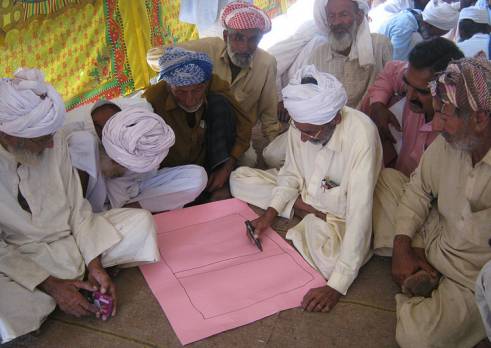With the UN Office for Disaster Risk Reduction (UNISDR), we have launched a survey to collect older people’s views on how they cope with disasters and participate in disaster risk reduction.
The survey for older people will inform the messages for this year’s International Day for Disaster Reduction on 13 October and ensure older people’s voices are heard.
Margareta Wahlström, the Head of UNISDR, said:
“This year’s International Day for Disaster Reduction will focus on older people, including their needs and what they contribute to better planning and understanding of disaster risk in their communities.
“We know from grim experiences in both developed and developing countries that older people often die in disproportionate numbers in disaster events.”
Targeting governments and agencies
Together, we have also created a further online survey which targets governments and other agencies on their perceptions and inclusion of older people in disaster management planning.
This will provide insight into the perception of disaster management professionals on the vulnerabilities and capacities of older people in disaster risk reduction.
It will help to understand where better understanding and inclusion is needed, as well as which activities can bring down the barriers to age-inclusive disaster risk reduction practices.
Example of Typhoon Haiyan
A survey, carried out with our partner the Coalition of Services of the Elderly following Typhoon Haiyan in the Philippines, found that 27% of older people received no shelter assistance.
Single women aged 80 and above were the most excluded group. Large percentages of older people also struggled to meet other needs, such as food and medicine.
Clare Harris, HelpAge’s Disaster Risk Reduction and Resilience Advisor, said:
“We are delighted that this year’s International Day for Disaster Reduction will focus on older people.
“Older age can bring reduced mobility and strength, impaired sight and hearing, and greater vulnerability if these conditions are not addressed in disaster risk management. However, older people’s knowledge, skills and experience can be a great contributor to resilience building.
Older people can build resilience to disasters
“Knowledge of past disaster impacts, local climatic, environmental and hazard systems, as well as older people’s life experiences as community members, leaders and carers are invaluable; if engaged and valued.
“Older people can be a major asset to society in building resilience to disasters, and they have a right to protection and inclusion.
“We hope that this year’s International Day for Disaster Reduction will bring about stronger recognition and understanding of older people’s unique vulnerabilities and contributions to disaster risk reduction, as well as encouraging age-inclusive disaster risk reduction and climate adaptation policies and practices.”
Share the surveys:
The surveys for older people are available in:
The surveys for governments and other disaster management actors are available in:
